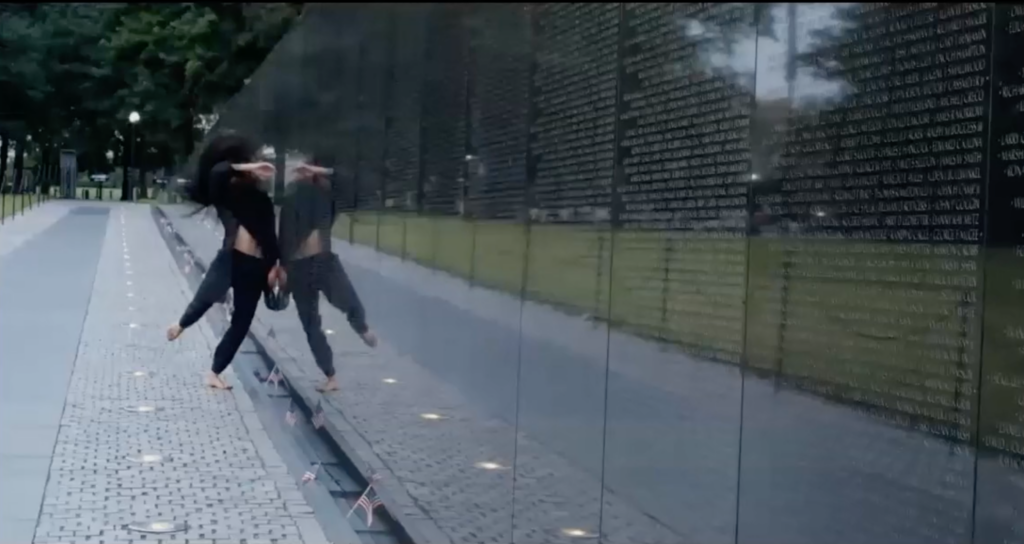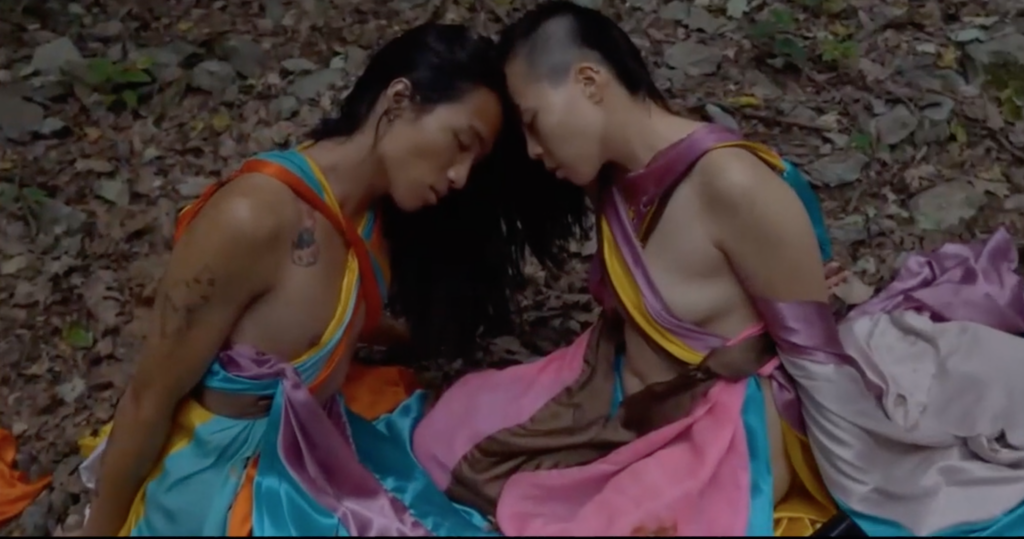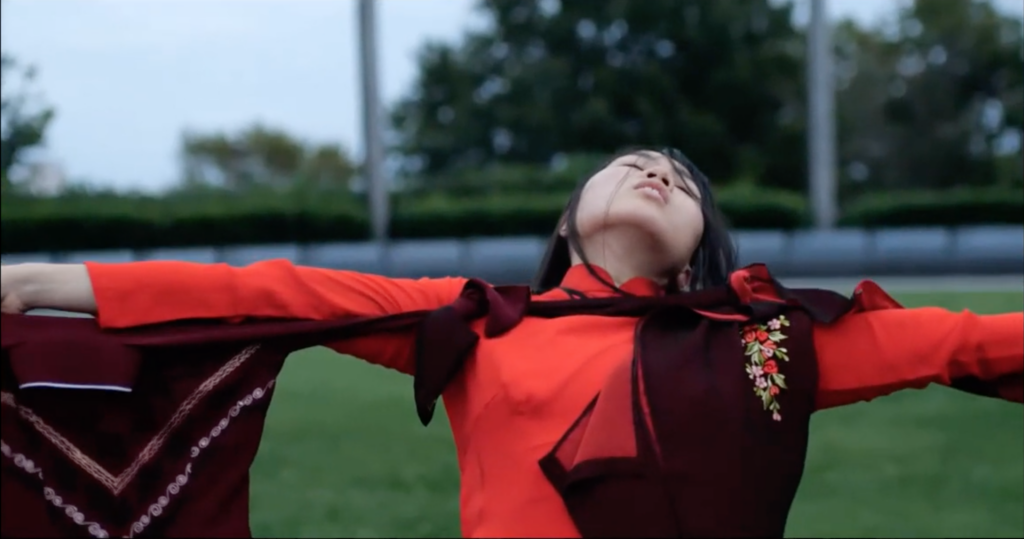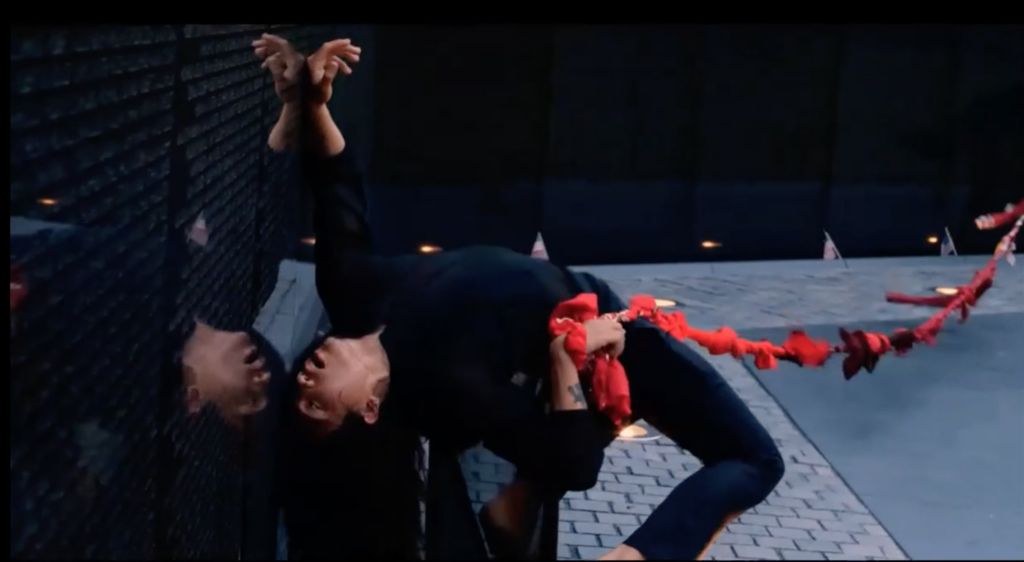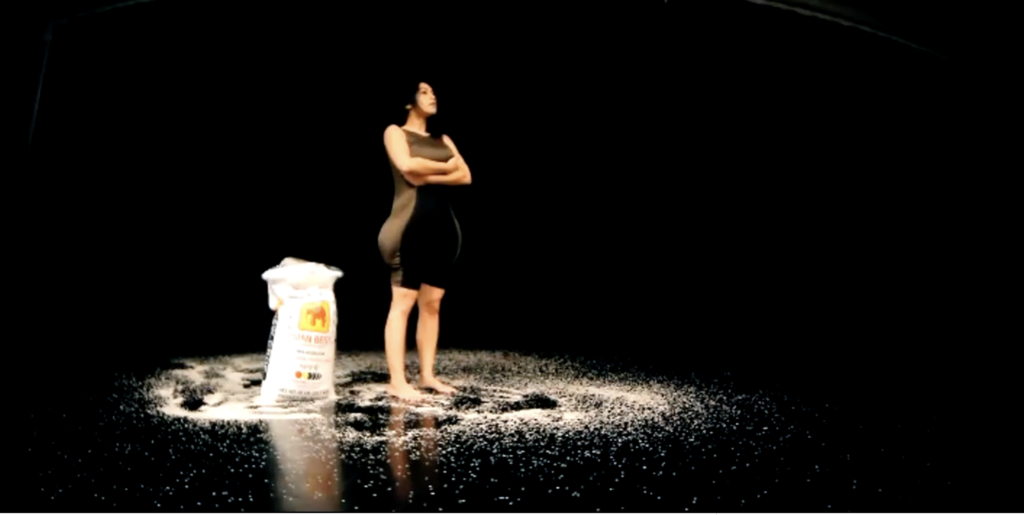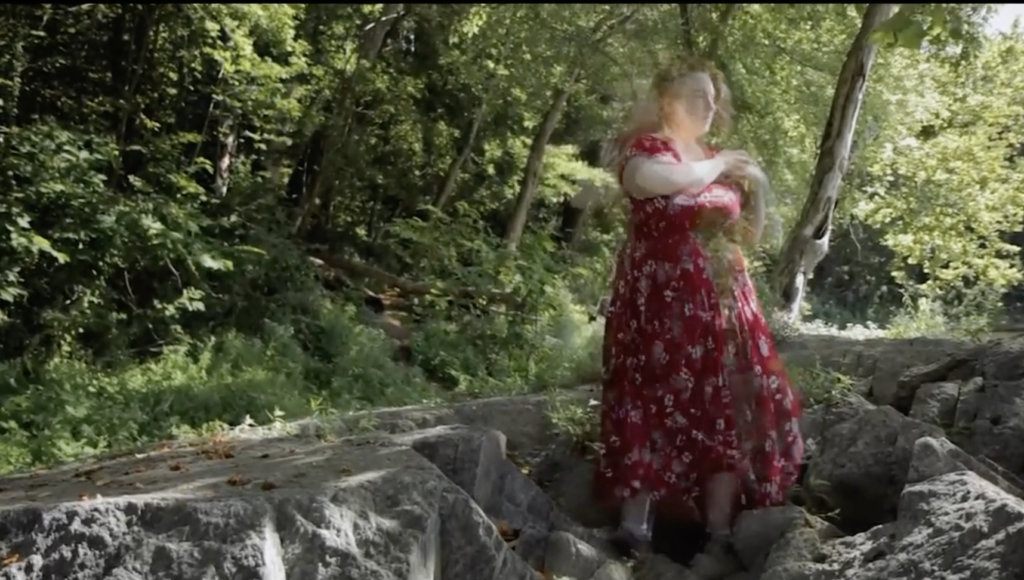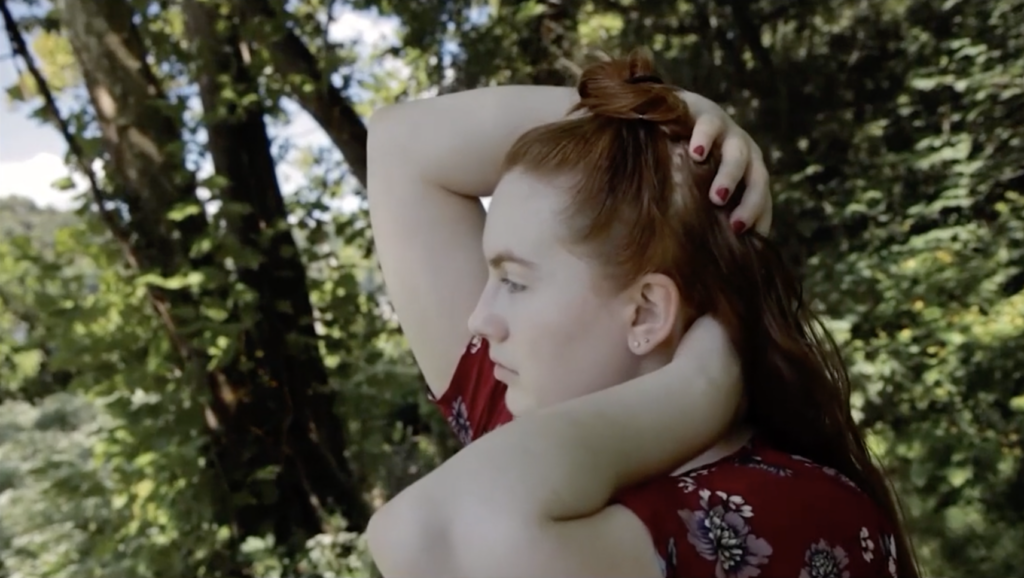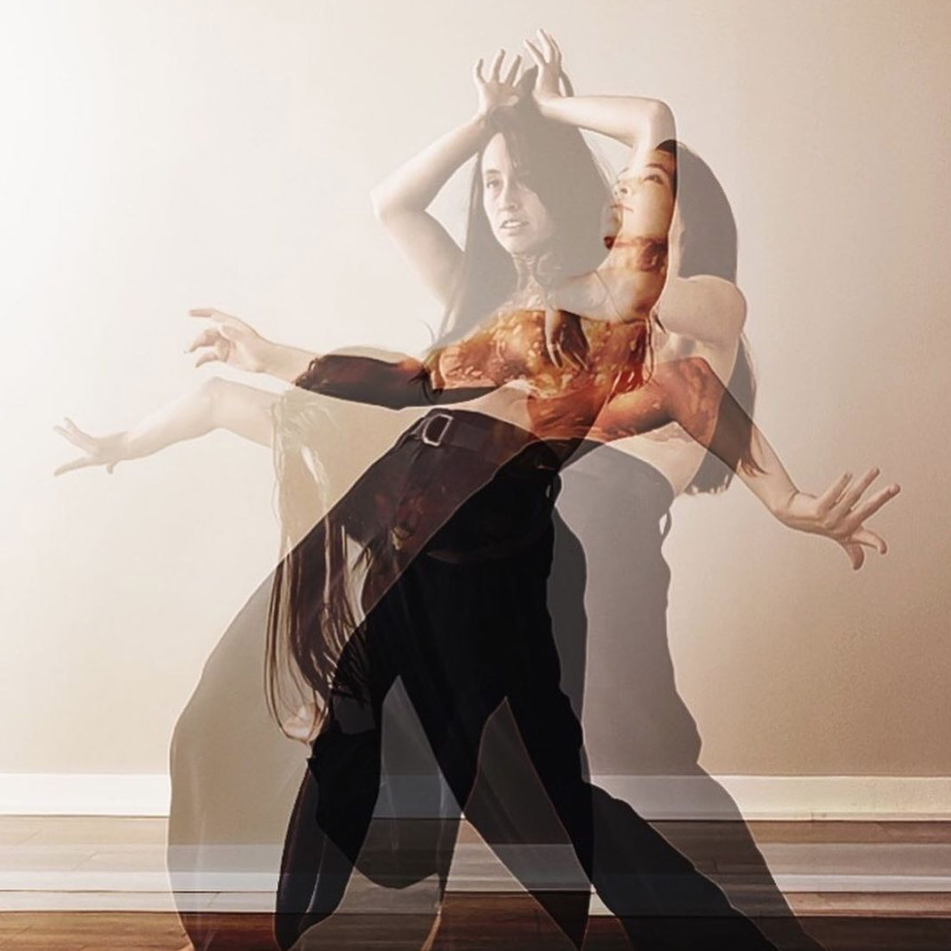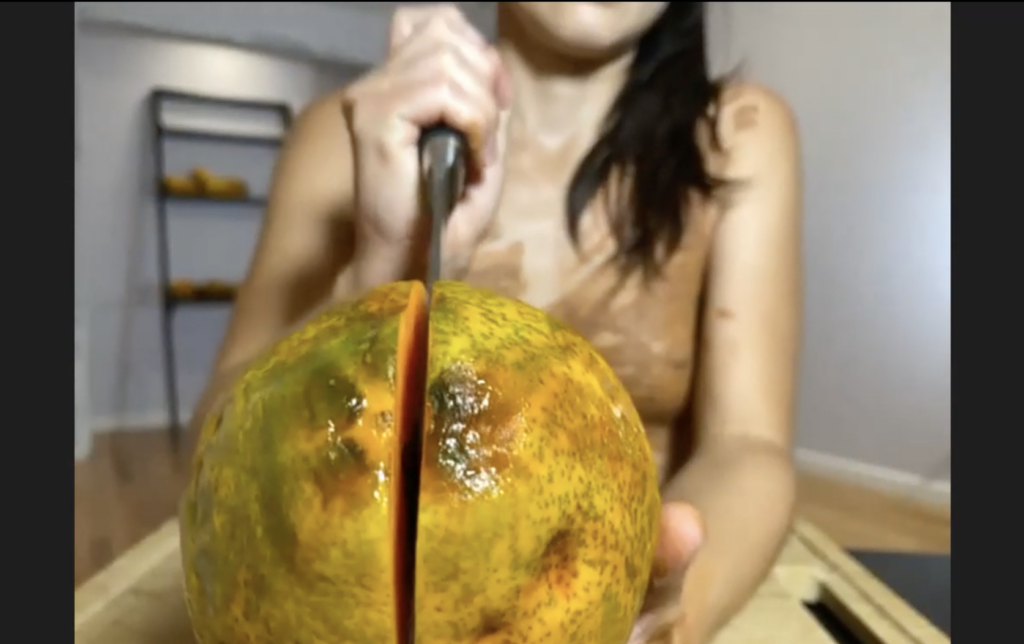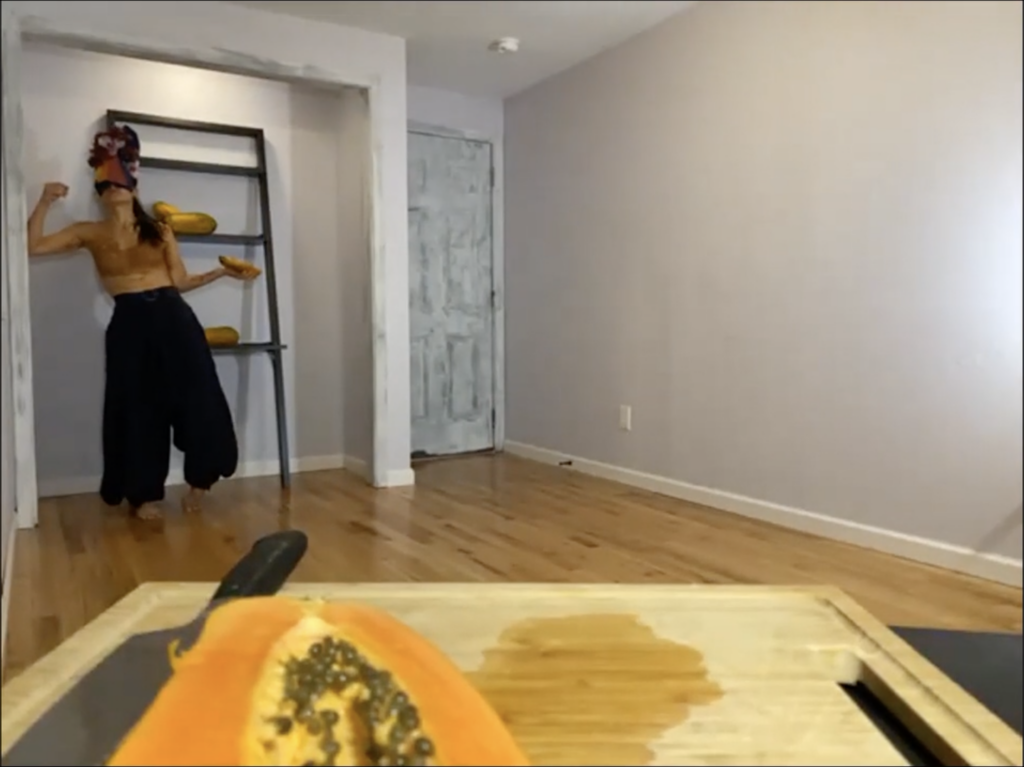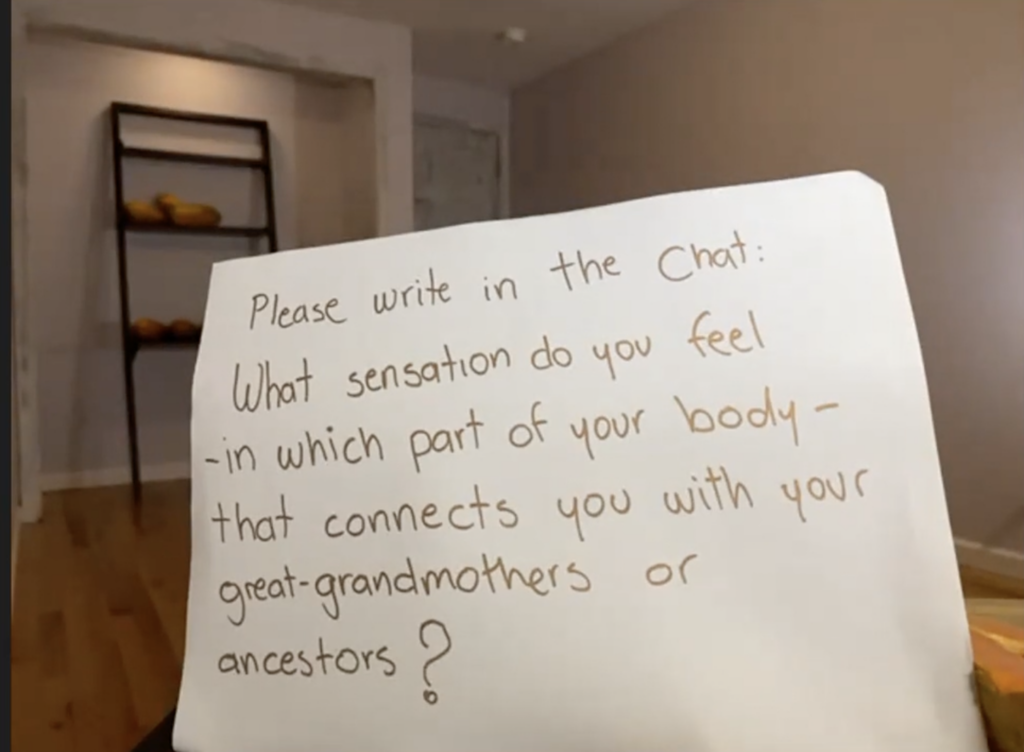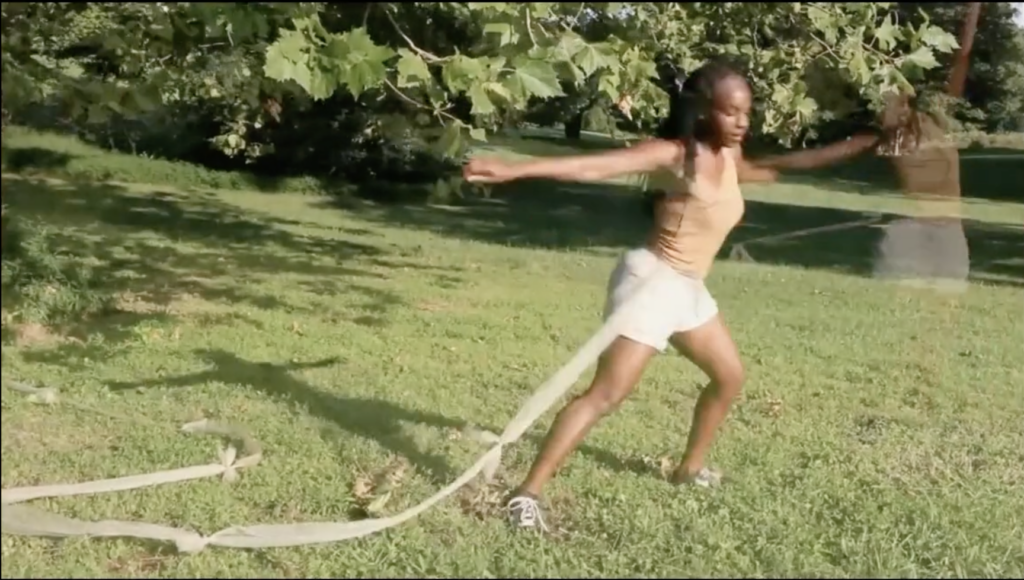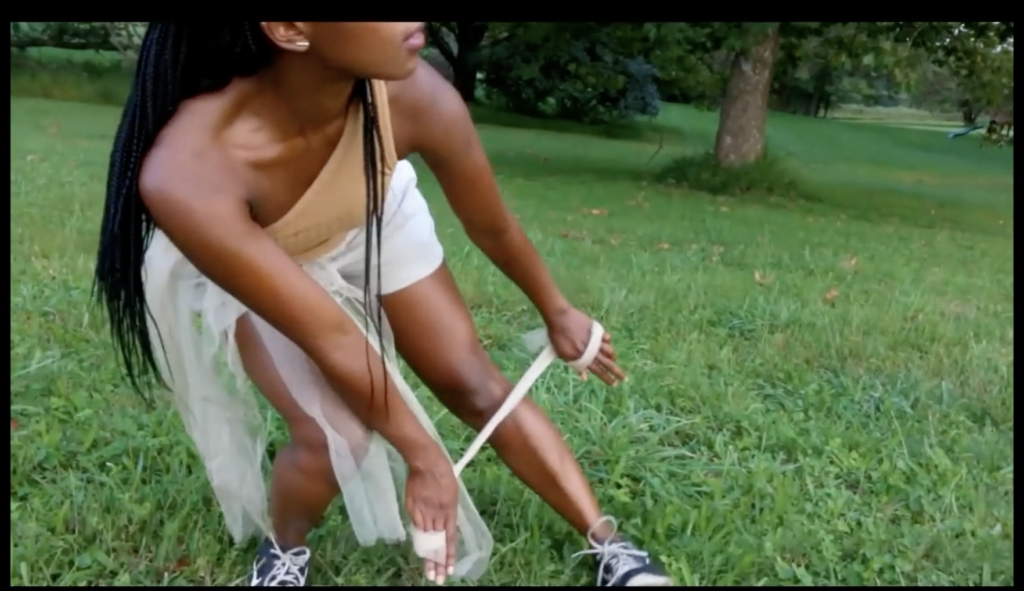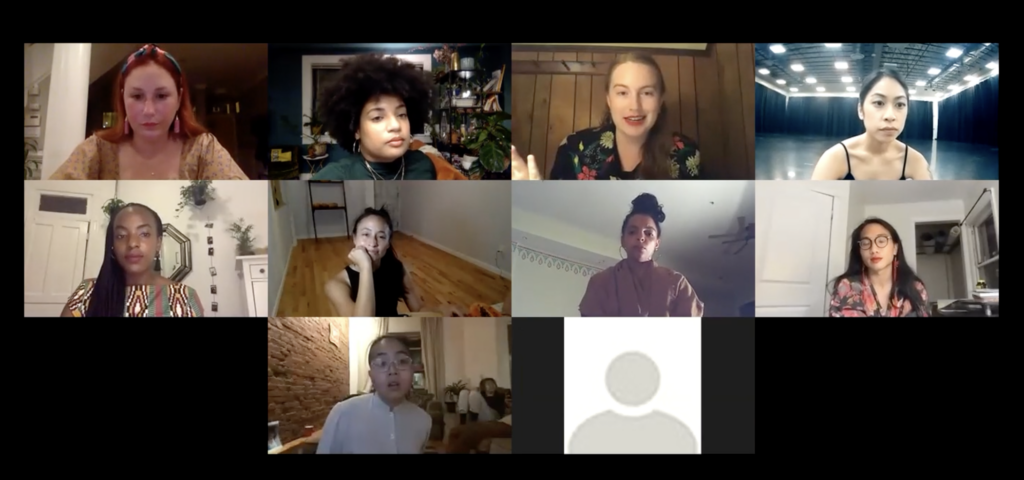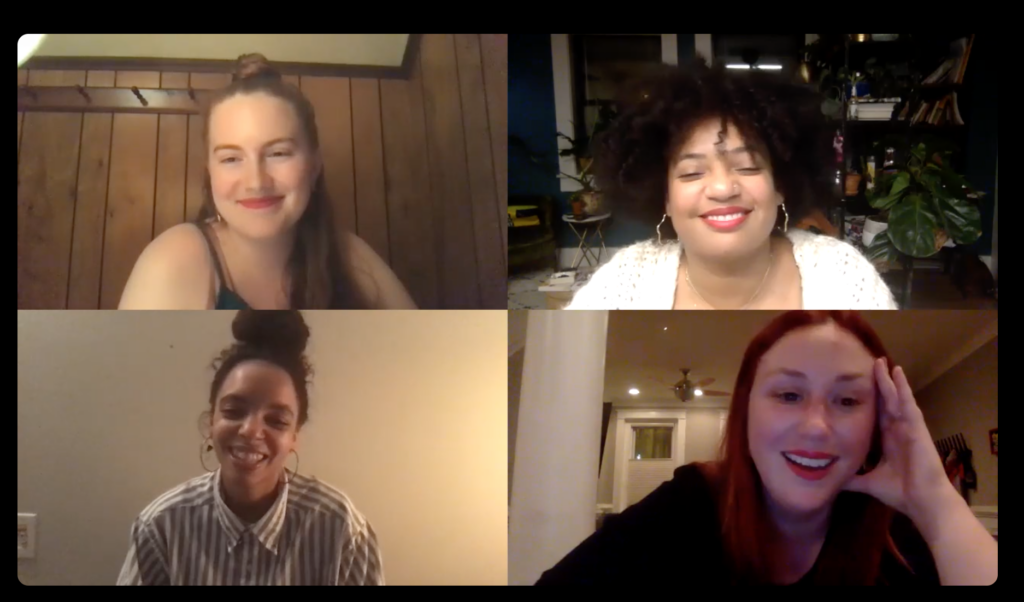KUVV
Virtual
KUVV was a multidisciplinary, collaborative project organized by choreographer and performance artist Hayley Cutler, exploring the relationship between home, familial lineage, and the body.
Cutler writes about the project, “To live in a body is to carry with you not only your immediate past but the actions—some chosen, many not—of your ancestors. […] It is important that viewers of the culminating work understand that it is a shared physical expression of survival, strength, and persistence.” KUVV aims to be a platform for personal storytelling told through the body, considering what our bodies remember from generations passed.
About the KUVV Performance
KUVV culminated in an evening-length, live-streamed, performance on Saturday, September 26 comprising new work by six artists. Selected through an open call, Emily Ames, Antonius and Theresa-Xuan Bui, Jamie Garcia, Akela Jaffi, Juliana Ponguta, and Vyette Tiya worked independently and in conversation with each other to create intimate responses to Hayley Cutler’s prompt: How does your familial lineage live in your physical body today, and how does that contribute to your sense of home as it relates to your identity?
The program is as follows:
1. Antonius & Theresa Bui, UPON SKIN UPON STONE, 12 minutes
Responding to various Vietnam Veterans Memorials on the East Coast, Theresa and Antonius will complicate our understanding of the Vietnamese diaspora through intuitive movement and poetry. Oscillating between intense stillness and chaos, they explore the phenomena of reverb as a metaphor for assimilation. Beginning with references to their traditional Vietnamese-Catholic upbringing, their movements will echo into glimpses of an Asian-American futurism.
2. Akela Jaffi, parting gifts, 16 minutes approx.
“parting gifts” is a ritual piece to gain freedom from the past. a recollection of that which is no more, a portrait of mending fear into pride. This work is a funeral for my regrets and a public commitment to a stronger self. i am grateful for this gift of movement, what a powerful medicine.
3. Emily Ames, STAKE, 12 minutes
A direct descendant of Mormon pioneers, Emily Ames has a complicated relationship with her lineage. Generations of her family have settled on unceded land in northern and southeastern Utah and eastern Idaho, spanning the ancestral homes of the Eastern Shoshone, Goshute, Pueblos, Ute, and Shoshone-Bannock peoples. In her dance film “STAKE”, Emily feels the weight of her colonizer ancestry and meditates on what to keep and what to root out.
4. Jamie Garcia, Ako, 15 minutes
Familial burden, sacrifice, expectation, and pressure manifested from mental to tangible weight. Rice — the symbol of my culture, my foundation, my home. Living as Filipina American, I carry this rice as I carry my history, lineage, and legacy. My body is a reflection of my parents in society — their choices, failures, and successes. What do I bear? How do I bear? The heart is heavy, the backaches, the body is overwhelmed.
5. Juliana Pongutá, Muysua, 15 minutes approx.
Body memories, sometimes there are no words but memories are often kept in our bodies, what happens when you know they exist but you can’t recall them? “MUYSUA” is an attempt to remember in my body and with my body those that came before me, those that I didn’t get to know and yet, somehow inhabit this body. In this live performance, the audience is encouraged to participate. In preparation, the audience will receive an audio prompt to listen to before the performance. During the performance, there will be a time for the audience to offer their own memories and witness them reflected through this moving body.
6. Vyette Tiya, a small riot, 7 minutes
Spiritual and physical practices and research reveals that our deepest emotional histories are often stored in our hips. This site (hips) is where we find pleasure, bear weight, support life, begin anew, and house trauma. On my body, I see my aunt’s hips and feel deeply attributed to her. Among many attributed features, I’m interested in the inheritances that are internalized in our bodies: a fear of abandonment, a knack for recklessness, unending generosity… A small riot curiously explores the question, if we had the choice to inherit or leave behind a trace of our lineage, what would we choose? This work is intended to be experienced via active vantage. Spoken word is integral to this performance, and a small riot draws from various poets, most notably “Teaching My Mother How to Give Birth” by Warsan Shire. Site-inspired, this work is tethered to womanhood, journey, resistance, and origin. Universally symbolic and especially true in African cultures, this work is fixed to a common origin, represented by a tree. It then folds and unravels and rebels. It wants to go back to where it began.
About the Participating Artists
Emily Ames is a dancer, choreographer, and collaborator who tries to add sequins and a touch of irreverence wherever she can. She graduated in 2018 from the University of Maryland with degrees in dance and history. When not at her 9-5 at Studio Theatre, Emily dances for Heart Stück Bernie and Britta Joy Peterson. Emily’s choreography has been presented at the NextNOW Fest, the American College Dance Association, UMD’s Second Season series, and supported by Dance Metro DC. Past artistic highlights include: destroying abandoned classrooms with Marc Bamuthi Joseph’s blessing, throwing a post-apocalyptic party courtesy of Monstah Black, and touring Sinaloa, Mexico with PEARSONWIDRIG DANCETHEATER.
Theresa-Xuan and Antonius Bui are Queer Vietnamese-American artists and siblings. They are the children of Paul and Van Bui, two Vietnamese refugees who sacrificed everything to provide a future for their four kids and extended family. Born and raised in the Bronx, Antonius and Theresa eventually moved to Houston before each pursuing a BFA at the Maryland Institute College of Art (MICA). Their polydisciplinary practices are rooted in the Vietnamese diaspora and they demand to be as non-binary as their identities.
Juliana Pongutá Forero is a Colombian-born performer, choreographer and educator. Her practice explores the relationship between imagination, creativity, and instinct. She is passionate about creating and exploring experiences that nurture curiosity and reflection. Performance and teaching spaces are for her an opportunity to connect with others, ask questions, and embody ideas that sometimes cannot be expressed in words. Juliana’s performance work has been presented in Mexico, Peru, Argentina, Colombia, and the United States. She co-founded “La Montón” Dance Collective” (Argentina) and collaborates with Jonathan Gonzalez (Colombia). She has worked with the Contemporary Dance Company of the National University of Arts of Argentina (Argentina), Andanzas (Peru), Compañia de Danza H3 (Colombia), and Orange Grove Dance and S.J. & Dancers (USA). She is also a Dance Exchange partnering artist since 2017. In addition, her teaching and performance engagements have taken her to Cuba, New Zealand and Brazil.
Jamie Garcia illustrates controversial, societal narratives and extremely personal sentiments as a Filipino American womxn. Her style of movement can be described as pedestrian, heavily composed of impulsive and reactionary gestures. In her interactive and immersive performance art, she approaches the peculiar, embraces the uncomfortable, acknowledges the unseen, and challenges the conventional. Jamie produces passion projects through a movement collective she founded, The Wabi-Sabi Society.
Akela Jaffi is a writer and dancer currently residing in DC. Her movement work has been largely centered around ritual, using dance as a way to pay homage to the passings of life. She has been training, choreographing, and creating for the stage for 15 years, and is still learning new things about dance at every turn. While movement provides a connection to the ego, the extrovert and the performer within, writing has served as a connection to spirit and bloodline. She believes in art as a healing medium, and hopes to create work that permits deep conversation with the self, both for the audience and the creator.
Vyette Tiya is a DC-based dancer and collaborator. Through movement research, improvisation as practice, and melding different forms, Vyette seeks to tap into the subtleties and extremities of sharing our authentic selves. Vyette is invested in community-engaged dance and social commentary, utilizing performance as means for shared knowledge and personal connection. A graduate of American University, Vyette studied international relations and dance, where she honed her skills in contemporary and jazz, blended with her background in African dance, freestyle, and urban choreography. Vyette has performed on stages and in site-specific works, including at the Smithsonian National Gallery of Art, Dance Place, the Kennedy Center, Georgetown Waterfront, and Katzen Arts Center.
About the Artist-Organizer
Hayley Cutler is a choreographer, performer, and dance educator based in Washington, DC. She is the Founder and Artistic Director of darlingdance, a feminist dance theater company celebrating its 10th anniversary season. As a maker and performer, Hayley pushes the boundaries of intimacy and comfort and encourages her audience to expand their notions of what dance making is. Her work aims to portray what total autonomy looks like for female bodies in public spaces. Her work has been performed in traditional theater spaces, art galleries, on basketball courts, at city bus stops, in studio apartments, and in her local CVS store. Hayley is a 202Creates Resident Artist alumna and a three-time recipient of a DC Commission on the Arts and Humanities Artist Fellowship. Her next project is a large scale site-specific work that will be presented by the Kennedy Center in Spring 2021.
Supporters
This and other WPA projects are made possible by the DC Commission on the Arts and Humanities, which receives support from the National Endowment for the Arts; The Andy Warhol Foundation for the Visual Arts; Bloomberg Philanthropies; The Corcoran Women’s Committee; The Morris & Gwendolyn Cafritz Foundation; Hickok Cole Architects; White&Case; and many other generous foundations, corporations, and individuals.

